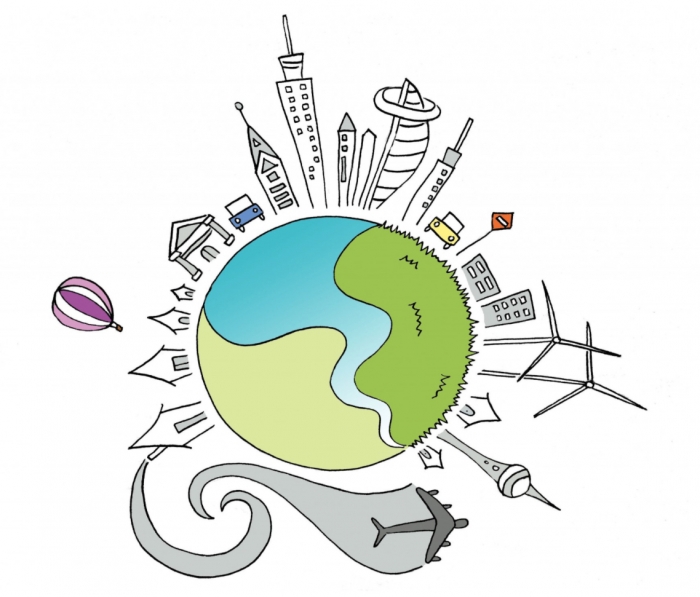Some scholars, politicians, and activists believe that the climate crisis merits the same kind of national and international response that COVID-19 is receiving, but others think that would be impossible. While climate change and COVID-19 are fundamentally different problems, they both pose massive threats to human well-being and require enormous behavioural shifts.
Much like a pandemic, climate change is a threat multiplier: A study of the SARS epidemic in China found that patients from regions with high air pollution were twice as likely to die from the illness as patients from regions with cleaner air. Similarly, air pollution from greenhouse gases such as carbon dioxide, methane, and nitrous oxide make people more susceptible to respiratory illness, which can exacerbate the risks associated with COVID-19 and disease in general. Furthermore, urbanization and rising temperatures are expanding the geographic ranges of both animals and humans, creating more potential vectors of disease transmission.
According to Hamish van der Ven, professor in the Department of Political Science at McGill, the discrepancy between how governments have responded to COVID-19 and climate change is in part due to which populations are most affected. Climate change is threatening the futures of younger generations, while COVID-19 is taking the lives of older people.
“We have seen a response to COVID-19 because people in power are equally at risk of suffering adverse health impacts,” van der Ven said in an interview with The McGill Tribune. “Boomers care about the problems that affect them [….] Boomers stand to suffer the most from [COVID-19], and millennials stand to suffer from climate change.”
Another reason that the responses to both problems have been different is because climate change can still seem like a somewhat distant problem.
“COVID-19 forces immediate behavioural action because it is easier to trace causality,” van der Ven said. “Climate change does not have acute, easily attributable impacts, making action much harder.”
Further, while climate change has been unfolding slowly for decades, COVID-19 has appeared rapidly, and the situation understandably demands quick and decisive action. With social distancing, quarantining, and, hopefully, immunization, COVID-19 can be contained.
Climate change, on the other hand, does not have a quick fix. The behavioural shift needed to respond to COVID-19 is conceptually simpler, requiring that people put their lives on hold for weeks and likely months to come. Responding to climate change, however, will mean a multi-generational commitment to reshaping industries and the economy.
The current pandemic may demonstrate that decarbonization is doable, at least in a short time frame. From January to March, for example, China reduced their CO2 emissions by 25 per cent.
“This may be a political opportunity and a chance to restructure the economy,” van der Ven said.
Governments could even use the power they have to provide bailouts to shift towards decarbonization. Academics are calling to leave the oil and gas industry to fend for itself and for airline-industry bailouts to include emissions-reduction requirements. This opportunity to decarbonize and downscale the economy is only one of the ways in which the current state of the world mirrors some of the tenets of degrowth, a movement that advocates for economic slowdown.
“[COVID-19] has put degrowth into a new perspective and [forced people to] question what is essential and what is non-essential,” Nicolas Kosoy, a professor in McGill’s Department of Natural Resource Sciences, said in an interview with the Tribune.
While COVID-19 has shown us that behavioural change is possible, Kosoy acknowledged that no one in their right mind would hope to replicate COVID-19 as a formula to reduce emissions. What’s more, the emergency policies in response to COVID-19 may temporarily reduce emissions, but it is likely that COVID-19 will ultimately be a step back in global efforts to respond to climate change, as people begin to realize just how precious experiences such as travelling, eating out, and consuming are. Furthermore, if the response to COVID-19 is held up as a model for climate action, it will be hard to garner public support.






